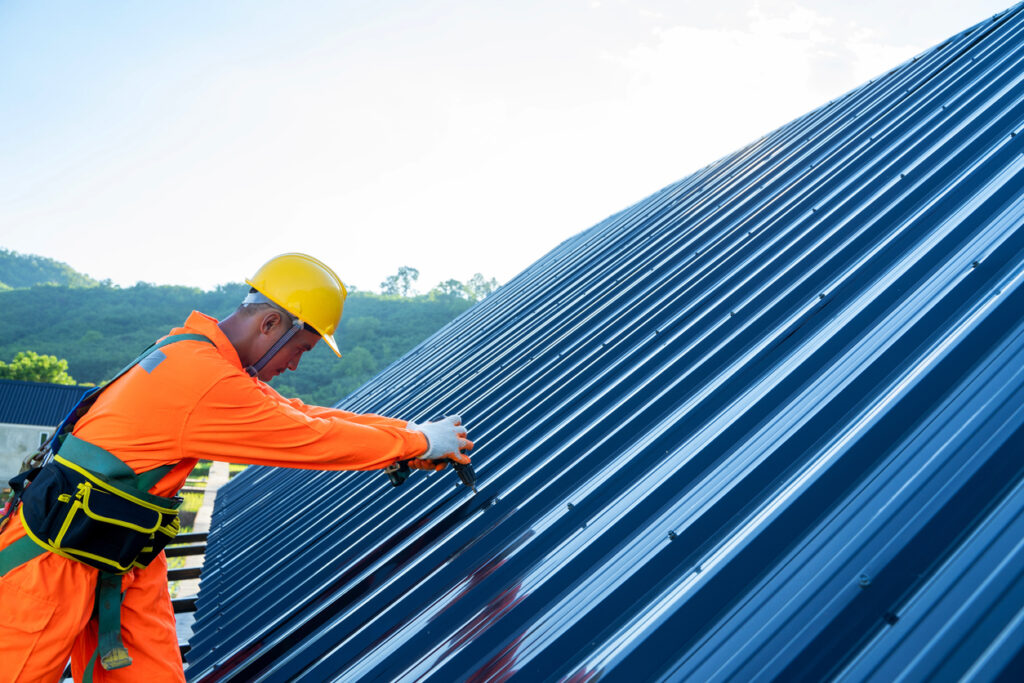Roofing systems in warm climates face a unique set of challenges, testing their resilience and durability against the relentless elements. From scorching temperatures to intense sunlight, the impact of warm weather on roofs is multifaceted. In this comprehensive guide, we delve into the specific weather challenges that roofs encounter in warm climates and explore how these challenges can be mitigated through proactive measures and advanced testing.
Intense Sunlight and UV Radiation
Warm climates often come with prolonged exposure to intense sunlight and ultraviolet (UV) radiation. These factors can accelerate the degradation of roofing materials, leading to issues like color fading, cracking, and loss of structural integrity. Regular inspections and advanced testing methods play a crucial role in identifying early signs of UV damage, allowing for timely intervention.
High Temperatures and Thermal Expansion
The scorching heat in warm climates can result in elevated roof temperatures, leading to thermal expansion of roofing materials. This expansion and contraction cycle can weaken the structural integrity of the roof, causing cracks and gaps. Routine inspections can help detect areas prone to thermal stress, enabling proactive measures to reinforce vulnerable points and prevent extensive damage.
Moisture Intrusion and Mold Growth
Despite the warmth, warm climates are not exempt from occasional rain or humidity. Moisture intrusion poses a significant threat, leading to mold growth, rot, and compromised insulation. Forensic testing becomes invaluable in assessing the resistance of roofing materials to moisture absorption. By identifying vulnerabilities early on, roofers can prevent water damage and maintain the integrity of the roofing system.
Hurricanes and Tropical Storms
Warm climates, especially in coastal regions, are susceptible to hurricanes and tropical storms. These weather events bring heavy rains, strong winds, and flying debris that can cause immediate damage to roofs. Water column testing, a method simulating heavy rain and storm conditions, helps evaluate a roofing system’s water resistance. This information is crucial for reinforcing weak points and ensuring the roof can withstand the impact of tropical storms.
Humidity and Microscopic Damage
High humidity levels in warm climates create an environment conducive to microscopic damage in roofing materials. Microscopic evaluation, a meticulous testing approach, uncovers hidden defects, deterioration, and weaknesses. By identifying subtle issues invisible to the naked eye, roofers can address microscopic damage before it escalates, preserving the longevity and performance of the roofing system.
Preventing Damage with Forensic Testing
In warm climates, where roofs are subjected to intense sunlight, high temperatures, and occasional rain or humidity, the risk of damage, particularly delamination, moisture intrusion, and microscopic defects, is heightened. Implementing proactive testing strategies, such as delamination testing, desaturation testing, water column testing, and microscopic evaluation, can effectively prevent extensive damage to roofs in warm climates.
Delamination Testing
Delamination, the separation of layers in roofing materials, can compromise the structural integrity of the roof. Delamination testing employs advanced methods such as core sampling and non-destructive techniques to identify potential separation between layers. By detecting delamination early on, roofers can take preventive measures to reinforce bonding between layers, preventing further damage and ensuring the longevity of the roof.
Desaturation Testing
Moisture intrusion is a persistent concern in warm climates, where high temperatures and occasional rain can lead to water absorption in roofing materials. Desaturation testing assesses the resistance of roofing materials to moisture absorption. By identifying areas susceptible to moisture intrusion, roofers can implement preventive measures to mitigate water damage, mold growth, and compromised insulation. CORE Forensics’ desaturation testing provides valuable insights to address moisture-related issues proactively.
Water Column Testing
In regions prone to tropical storms and heavy rainfall, ensuring the water resistance of roofing systems is paramount. Water column testing simulates heavy rain and storm conditions to evaluate a roof’s ability to repel water effectively. By predicting how well a roofing system will perform during extreme weather events, water column testing enables roofers to reinforce weak points and enhance the roof’s resilience to water penetration. CORE Forensics’ water column testing assists in identifying vulnerabilities and strengthening the roof’s defenses against water intrusion.
Microscopic Evaluation
Microscopic defects, although invisible to the naked eye, can compromise the structural integrity of roofing materials over time. Microscopic evaluation, a meticulous testing approach offered by CORE Forensics, uncovers hidden damage, deterioration, and potential weaknesses in roofing materials. By identifying and addressing microscopic defects early on, roofers can prevent extensive damage and ensure the long-term durability of the roof in warm climates.
Forensic Roof Testing for Warm Climates
Incorporating delamination testing, desaturation testing, water column testing, and microscopic evaluation into roofing maintenance and inspection routines can significantly enhance the resilience and longevity of roofs in warm climates. By proactively identifying and addressing potential issues, roofers can prevent extensive damage, reduce repair costs, and ensure the continued performance of roofing systems in the face of challenging weather conditions.
CORE Forensics’ commitment to tailored testing solutions and advanced methodologies empowers businesses in warm climates to navigate the challenges posed by weather extremes. By combining localized knowledge, precise testing strategies, and a proactive approach, CORE Forensics ensures that roofing systems remain resilient, durable, and capable of withstanding the unique weather challenges presented by warm climates. Contact our team today to learn more about our many forensic testing services.

